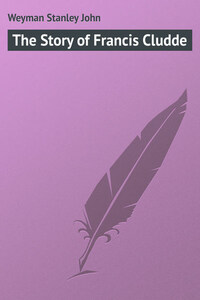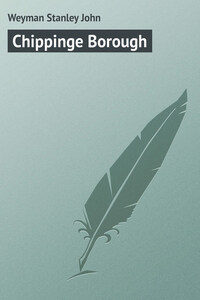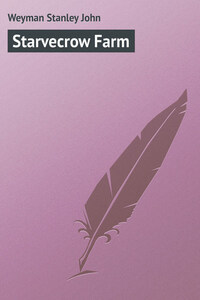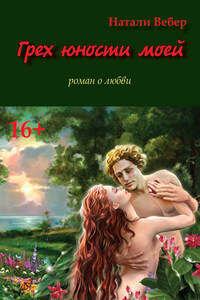CHAPTER I
"HÉ, SIRE ANE, HÉ!"
On the boundary line between the two counties of Warwick and Worcester there is a road very famous in those parts, and called the Ridgeway. Father Carey used to say-and no better Latinist could be found for a score of miles round in the times of which I write-that it was made by the Romans. It runs north and south along the narrow spine of the country, which is spread out on either side like a map, or a picture. As you fare southward you see on your right hand the green orchards and pastures of Worcestershire stretching as far as the Malvern Hills. You have in front of you Bredon Hill, which is a wonderful hill, for if a man goes down the Avon by boat it goes with him-now before, and now behind-a whole day's journey-and then stands in the same place. And on the left hand you have the great Forest of Arden, and not much besides, except oak trees, which grow well in Warwickshire.
I describe this road, firstly, because it is a notable one, and forty years ago was the only Queen's highway, to call a highway, in that country. The rest were mere horse-tracks. Secondly, because the chase wall of Coton End runs along the side of it for two good miles; and the Cluddes-I am Francis Cludde-have lived at Coton End by the Ridgeway time out of mind, probably-for the name smacks of the soil-before the Romans made the road. And thirdly, because forty years ago, on a drizzling February day in 1555-second year of Mary, old religion just reestablished-a number of people were collected on this road, forming a group of a score or more, who stood in an ordered kind of disorder about my uncle's gates and looked all one way, as if expecting an arrival, and an arrival of consequence.
First, there was my uncle Sir Anthony, tall and lean. He wore his best black velvet doublet and cloak, and had put them on with an air of huge importance. This increased each time he turned, staff in hand, and surveyed his following, and as regularly gave place to a "Pshaw!" of vexation and a petulant glance when his eye rested on me. Close beside him, looking important too, but anxious and a little frightened as well, stood good Father Carey. The priest wore his silk cassock, and his lips moved from time to time without sound, as though he were trying over a Latin oration-which, indeed, was the fact. At a more respectful distance were ranged Baldwin Moor, the steward, and a dozen servants; while still farther away lounged as many ragamuffins-landless men, who swarmed about every gentleman's door in those times, and took toll of such abbey lands as the king might have given him. Against one of the stone gate-pillars I leaned myself-nineteen years and six months old, and none too wise, though well grown, and as strong as one here and there. And perched on the top of the twin post, with his chin on his knees, and his hands clasped about them, was Martin Luther, the fool.
Martin had chosen this elevated position partly out of curiosity, and partly, perhaps, under a strong sense of duty. He knew that, whether he would or no, he must needs look funny up there. His nose was red, and his eyes were running, and his teeth chattering; and he did look funny. But as he felt the cold most his patience failed first. The steady, silent drizzle, the mist creeping about the stems of the oak trees, the leaden sky proved too much for him in the end. "A watched pot never boils!" he grumbled.
"Silence, sirrah!" commanded my uncle angrily. "This is no time for your fooling. Have a care how you talk in the same breath of pots and my Lord Bishop!"
"Sanctæ ecclesiæ," Father Carey broke out, turning up his eyes in a kind of ecstasy, as though he were knee to knee with the prelate-"te defensorem inclytum atque ardentem-"
"Pottum!" cried I, laughing loudly at my own wit.
It was an ill-mannered word, but I was cold and peevish. I had been forced to this function against my will. I had never seen the guest whom we were expecting, and who was no other than the Queen's Chancellor, Stephen Gardiner, but I disliked him as if I had. In truth, he was related to us in a peculiar fashion, which my uncle and I naturally looked at from different standpoints. Sir Anthony viewed with complacence, if not with pride, any connection with the powerful Bishop of Winchester, for the knight knew the world, and could appreciate the value it sets on success, and the blind eyes it has for spots if they do but speckle the risen sun. I could make no such allowance, but, with the pride of youth and family, at once despised the great Bishop for his base blood, and blushed that the shame lay on our side. I hated this parade of doing honor to him, and would fain have hidden at home with Petronilla, my cousin, Sir Anthony's daughter, and awaited our guest there. The knight, however, had not permitted this, and I had been forced out, being in the worst of humors.
So I said "Pottum!" and laughed.
"Silence, boy!" cried Sir Anthony fiercely. He loved an orderly procession, and to arrange things decently. "Silence!" he repeated, darting an angry glance first at me and then at his followers, "or I will warm that jacket of yours, lad! And you, Martin Luther, see to your tongue for the next twenty-four hours, and keep it off my Lord Bishop! And, Father Carey, hold yourself ready-"














